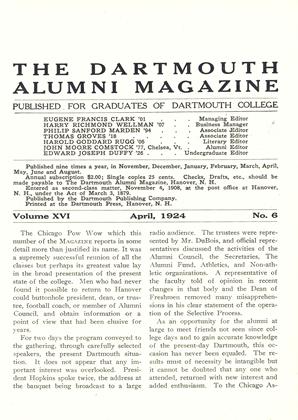"Poverty With Relation To Education," by Ralph P. Holben. Pp. 208. Philadelphia, 1923.
To those sociologists who have wearied at the excessive amount of speculative material that has been published in their field, this volume will be exceedingly welcomfe. Packed full of solid fact, based upon painstaking first-hand information, and highly quantitative in its treatment of the problems involved, the study is a real contribution to a further understanding of the relation of poverty to education. Recognizing that equality of opportunity in education is the corner stone of an efficient democracy, and that in a democracy educational opportunity must not be c'onfined to the more fortunate economic classes, the author by dint of hard facts is led to conclude that "such a thing as real equality of educational opportunity does not exist for all the children born under the flag." And since he demonstrates that among the poverty stricken groups of modern society there is to be found no small degree of ability which under present conditions, must lie dormant, one is driven by the logic of the case to agree that society suffers a loss it can ill afford to sustain.
'The study, a doctoral thesis at the University of Pennsylvania, falls into two natural divisions: The Parents and the School; and The Children and the School. In the first of these it is demonstrated that among poverty stricken families there is, for the most part, a recognition by parents that children should remain in school. But it is also proven that parents in this stratum of society are forced by economic pressure to capitalize the earning capacity of their children. Thus, at the outset, poverty means lack of educational opportunity. As the author sees, the tragedy lies not only in the fact that the children are forced from school into industry, but also in the fact that this brings blasted hopes to parents who appreciate the value of education and would like their children to have its benefits.
The second division again shows that the children themselves, in large numbers, have certain ambitions, but, driven by economic necessity, they leave school, and take up work that usually bears no relation to these ambitions. Needed as contributors to the family budget, the boys and girls of poor families drop study to earn what they can in whatever job they may secure. Eight out of every ten of the nearly 200 children studied believed that it pays to go to school, and three quarters of these were sorry to stop. But their help at home was needed, and their education consequently cut short.
The volume is a rather severe indictment of the inequalities of our existing economic and educational order, and while the conclusions are somewhat depressing, the study is not ended without some attempt to answer the question, what can be done? Mr. Holben mentions continuation schools, vocational advisers, visiting teachers, and similar measures, but he clearly sees that poverty is the root of the matter, and that unless some provision is made for the maintenance of the child while he is receiving his education, no suggested plans will work. Children are forced from school because of poverty, and unless the economic element is remedied it is futile to talk of more education for children from the present poverty-pressed ranks. Here mothers' pensions are suggested, and scholarships, but the reader is left with the impression that a real solution lies in larger social investments for education. Society must see that it will be to its advantage to train all ability within the population, and must provide funds to make this possible.
The data used in the study were gathered in the personal investigation of 100 families that had received charitable aid in one of the large eastern cities. The history of each of these families is included, and these serve as background for the study.
The issue of the Granite Monthly for February, 1924, contains an article by President Ernest M. Hopkins entitled "Be Broad Minded."
Mr. Robert E. Riegel is the author of an article "The Missouri Pacific 1879 to 1890" in the January, 1924, issue of the MissouriHistorical Review.
The issue of the Boston Evening Transcript for February 9, 1924, contains an article by Mr. George L. Frost "Is Dignity Joining the Dodo?"
 View Full Issue
View Full Issue
More From This Issue
-
 Article
ArticleTHE POW WOW
April 1924 By E. Russell Palmer '10 -
 Article
ArticleIS THE COLLEGE EDUCATIONAL PROCESS ADEQUATE FOR OUR MODERN WORLD?
April 1924 By Charles Dubots '91 -
 Article
ArticleThe Chicago Pow Wow which
April 1924 -
 Class Notes
Class NotesClass of 1916
April 1924 By H. Clifford Bean -
 Class Notes
Class NotesClass of 1903
April 1924 By Perley E. Whelden, John P. Wentworth -
 Class Notes
Class NotesClass of 1903
April 1924 By Perley E. Whelden, John P. Wentworth
Malcolm M. Willey
Books
-
 Books
Books"Trends in Greek Organization,"
MAY 1930 -
 Books
BooksBIBLIOGRAPHY OF TEXAS 1795-1845. Part III.
February 1961 -
 Books
BooksPutting Your Best Food Forward
OCTOBER, 1908 By Carole Ann Stashwick, M.D. -
 Books
BooksHOW TO SUCCEED AT TOUCH FOOTBALL.
MARCH 1963 By CLIFF JORDAN '45 -
 Books
BooksTHE PHENOMENOLOGY OF MORAL EXPERIENCE.
July 1955 By FRED BERTHOLD JR. '45 -
 Books
BooksTHAT MEN MAY UNDERSTAND
May 1941 By Louis P. Benezet '99



